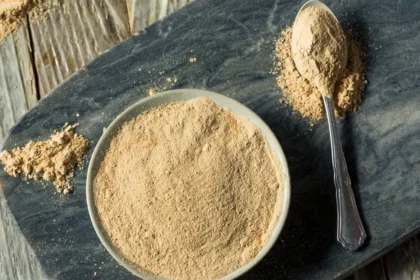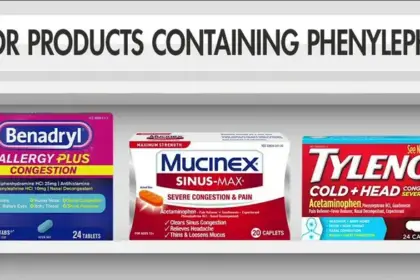For decades, millions have sought relief from the torment of acid reflux, a condition that plagues individuals with a burning sensation in the chest and a bitter taste in the mouth. It’s a discomfort that disrupts daily life, leaving many desperate for solutions.
But what if the very advice trusted medical professionals have been dishing out for years is actually contributing to the problem? It’s a revelation that challenges conventional wisdom and prompts us to reexamine the root causes of acid reflux.
In this eye-opening exploration, we’ll unravel the layers of misconceptions surrounding acid reflux, revealing how some of the most well-intentioned advice from doctors has unwittingly perpetuated the cycle of discomfort.
From dietary recommendations to lifestyle changes, we’ll scrutinize the practices that may have inadvertently exacerbated the issue.
But fear not, for this journey doesn’t end with grim revelations. Instead, armed with a deeper understanding of the complexities at play, we’ll dive into the overlooked strategies for restoring balance to your stomach’s pH.
With a renewed focus on holistic wellness and evidence-based approaches, we’ll equip you with the knowledge and tools to reclaim control over your digestive health.
The Unfortunate Truth About Acid Reflux And Salt
Although the salt and heart disease connection has been refuted by meta-analyses, the US dietary guidelines continue to urge Americans to restrict salt. For those individuals with minimal sodium reserves, this seemingly innocuous dietary suggestion can create problems ranging from digestive troubles and chronic infections like Candida, to depression and difficulty recovering from stress.
Salt is one of the most common minerals on earth and is primarily made of the elements sodium and chloride. Raw sea salt will include many additional elements.
Salt is critical to the human body. In fact, the body’s interior ocean is salty, and without salt, many chemical reactions that support enzyme function, energy production, hormone production, protein transport and many other biochemical processes simply will not work. Salt is important for bringing nutrients into all of our cells and also moving waste out.
One component of salt, chloride, is key for digestion in that it is a component of stomach acid or hydrochloric acid (HCl). Hydrochloric acid is critical in triggering enzymes that break down proteins and minerals in food.
Think about the importance of digesting calcium and protein for bone health, just as an example. Without adequate stomach acid, minerals and nutrients needed for bones will not be absorbed. HCl also stimulates enzymes that break down carbohydrates.
Signs Of Low Stomach Acid Production
A classic sign of low stomach acid production is feeling like food sits heavily in your stomach after eating. Animal proteins which require stomach acid to digest, can especially create this symptom in those with inadequate HCl.
Other signs of low stomach acid include heartburn, reflux, frequent burping, seeing food in the stool, gas and bloating. Those with chronic constipation or loose stools typically have issues with low stomach acid. Low stomach acid production can be linked with many chronic health issues such as hypothyroidism, hair loss, insomnia, ulcers, SIBO, adrenal fatigue and more.
The effect of salt on digestion and therefore one’s health is often under-stated. Without adequate HCl, the body will not receive balanced nutrition and as a result, many body systems suffer.
Salt Is Necessary For Proper Bodily Function
Both chloride and sodium are necessary for the firing of nerve cells. This means that every thing you experience, which is all processed through your nervous system, relies on salt. The sodium is used in the nerve cells to help build up the charge that allows the strong transport of energy from one nerve cell to the next.
In order to use our senses, move our muscles, pump the heart, and do the million little activities our bodies accomplish daily without a thought, we need salt.
Salt is critical for the glands and our sodium levels are also impacted by our response to stress. Sodium is important in bringing iodine into the thyroid gland in order to make thyroid hormones, for example. The pancreas will also make more insulin in response to low sodium levels.
When we experience high levels of stress, sodium in the body is used to give us an extra burst of hormones, neurotransmitters, and nerve signaling to respond. One place that we know sodium is stored is in the skin. If we experience pro-longed stress and do not replace the sodium stores we’ve lost, we have a harder time recovering or even coping day to day.
Many people have suboptimal sodium and chloride levels and they find that increasing raw salt is surprisingly helpful.
As sodium stores drop, the kidneys work harder to keep the sodium levels in the blood at a functional level. To do this, the pancreas raises insulin levels. The increase in insulin, when occurring chronically, results in many undesirable outcomes.
As insulin raises, a person preferentially wants to eat carbohydrates because we cannot burn fat while insulin is high. Therefore, a person prefers to eat sugar and carbohydrates more and this often develops into a chronic downward spiral. The intake of carbohydrates in this scenario leads to further insulin production.
Daily intake of more carbs and sugars leads to chronic inflammation which we know is the root of most disease. It also leads to obesity and an inability to burn fat and lose weight. Don’t forget too much insulin production leads to hormonal imbalance: less testosterone for men, and a shift in estrogen and progesterone for women.
How Much Salt Is Too Much?
An adult human on average contains 250grams of salt (enough to fill 3-4 salt shakers). This is constantly lost through bodily functions (urine, blood, tears, semen). It’s essential to replace this salt. Scientists have found across most populations, when people are left to un-restricted, they tend to take in 3000 to 4000mg sodium daily which is almost 2 teaspoons in salt.
From 1977 to current day, the US government recommends Americans restrict sodium to less than 2300mg daily which is about 1 teaspoon or less of salt. For any individuals at higher risk of disease, they were encouraged to restrict to 1500mg or less of sodium until 2015.
Where Did Government Recommendations Go Wrong?
Compelling evidence suggests that while processed salt can indeed cause fluid retention and related health problems, numerous studies have, overall, refuted the salt-heart disease connection. A 2011 meta-analysis of seven studies involving more than 6,000 people found NO strong evidence that cutting salt intake reduces the risk for heart attacks, strokes or death.
In fact, salt restriction actually increased the risk of death in those with heart failure. The risk for heart disease was 56 percent higher for the low-salt group than for the group who ate the most salt!
In 2015, Dietary Guidelines for Americans removed the severe sodium restriction recommendation (1500mg sodium daily) but kept recommendation that all Americans should restrict their sodium intake to less than 2300mg per day.
It’s true that some people, 10-50% of those with hypertension to be exact, experience an increase in blood pressure from too much salt. These individuals are deficient in other minerals and too much sodium throws them out of balance. In other words, if you don’t eat enough vegetables and whole foods to get adequate potassium, magnesium and calcium, and you are prone to hypertension, then too much sodium can cause issues.
This has been demonstrated in medical studies. When a salt-sensitive person with high blood pressure meets or exceeds the recommended daily allowance for potassium, magnesium and calcium, they are no longer salt sensitive.
The general advice to restrict sodium intake to less than 2300mg is potentially causing immeasurable harm to those who do not have high blood pressure. Many studies have shown that salt restriction has no health benefit for those with normal or low blood pressure. Indeed, it actually can be detrimental to health. At least two thirds of Americans are needlessly restricting salt and potentially suffering from digestive issues, nutrient deficiencies, sugar cravings, insulin resistance, electrolyte imbalance, depression and anxiety (just to name a few!).
Signs You Need More Salt
Do you have cravings, digestive issues, or a chronic health issue that is difficult to resolve? It could be that eating more salt is a simple solution to get you on the road to better health. Here are some general signs of low sodium levels:
- Low blood sugar
- Sugar cravings
- Salt cravings
- Addictions
- Adrenal dysregulation (fatigue or anxiety)
- Compromised immune system (low immunity or auto-immunity, for example)
- Chronic digestive issues
- Thinning hair
- Light-headedness and/or low blood pressure
- Fatigue
- Skin issues
- Candida or bacterial overgrowth
- Depression
- Brain fog
- Weakness
- Head-aches
- Nausea
- Cold extremities
- Skin remains tented when pinched
- Thirst
- Dry armpits and tongue
- Thyroid issues
- Low blood pressure
Salt cravings come from our brain which senses when sodium levels are suboptimal and the body needs more. Ignoring salt cravings can lead to increased sugar cravings as the body makes more insulin in an attempt to raise sodium levels in blood. Salt restriction can also lead to increased addiction to drugs like opioids.
Choosing a Healthy Salt To Remedy Acid Reflux
There are multiple sources of salts to choose from. I encourage people to buy those that are raw or minimally processed and high in mineral content. A favorite salt here at Green Living Tribe is Celtic sea salt because it is minimally processed from a seawater source in France and very high in trace elements. Himalayan salt is more expensive than other salts and is mined by hand from rock sources in Pakistan. Either of those are fine choices. Black and gray Celtic salt is great also.
Click Here To Check Out Starwest Botanicals Collection Of High Quality Salts
Since salt is critical to health and stress recovery, it makes sense to respond to salt cravings. If you are uncertain as to whether salt is beneficial for you, or wondering if you are eating the right amount of salt, I suggest testing with a comprehensive metabolic panel. I offer individual phone consultations for long-distance clients as well as office visits to help you with reviewing your health information and achieving your health goals.
Recommended Reading:
The Salty Truth The Food Industry Doesn’t Want You To Know About: Are Pink Himalayan, Sea, Celtic, Table Salt And Others All The Same?
Shocking Statistic: 98% Of Store Salt Contains Dangerous Hormone Harming Microplastics





